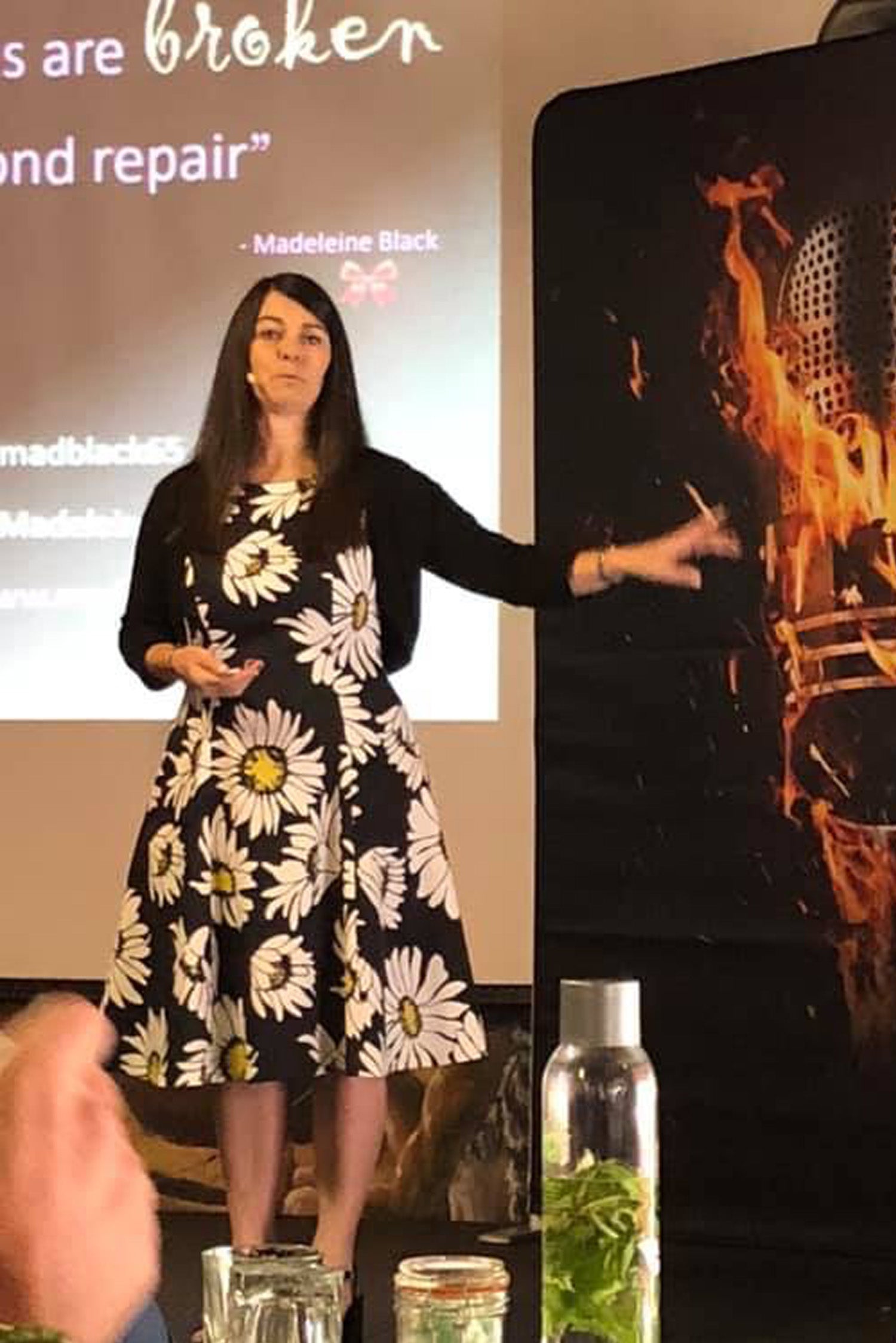
Learning from Madeleine's Kintsugi Story
I found Madeleine in a Facebook group. I learned about her book. When I found out what the book was about, I surely knew I had to interview her. When we connected over the phone, something interesting happened. She was in England, and I was in Florida. I felt almost hypnotized by her voice. There was a certain calm and warmth about her. It was not only her beautiful accent; it was the love that surrounded her vocal chords, from which words of love came out.
She is clearly a messenger. Some people search their entire life for their purpose in this world. To me, Madeleine’s purpose is very obvious. She has the ability to calmly reach inside of you, touch your heart, and leave it marked in a very noble way.
Madeleine spoke about things that are so private, personal in words that are hard to say. She did so with grace. She spoke about a life in the past and a zest for the future.
Three Lessons from Madeleine
- Forgiveness begins with forgiving yourself: For each person, forgiveness means something different. When you reach a point of forgiveness, there is a vast transformation that happens and alters the trajectory of one’s life. For Madeleine, it was forgiving herself and letting go of toxic thoughts. When you do that authentically, there is a serenity that takes over. It is a lack of shame that otherwise would paralyze you. That is to say, Madeleine was able to start speaking openly about her situation without shame but essentially pride. She survived. She is strong. She is exceptional, and she has a story to tell. She has a tool to help others. This is what she focused on, and therefore is why she was not ashamed of openly discussing her rape. There is nothing for her to be ashamed of anymore. She is aware that the actions of others don’t reflect on her but rather on them. Now, she can get busy living.
- Empathy for the perpetrator: If you let go of anger, you open the door to joy. This happened when she could think about her circumstances in a more empathetic way. She began understanding a bit of the other side. Madeleine grasped that these men were not born evil, that at some point they were innocent babies. Something awful must have happened to them to turn them into rapists, and she could actually feel compassion and empathy. It was also the time that she let go of the control over her children’s lives. She could understand it was not that there were tons of evil men lurking outside their door ready to harm her and her children. This was not the case. Even though this horrible, unimaginable thing happened to her, there is a wonderful life and wonderful people and wonderful experiences. They can all benefit from that life, if she just learned to let go of the tragedy and focus on the miracles of her life. And so, she did and was able to raise her kids in a healthy environment. She was able to break the cycle.
- The joy of helping others is stronger than the pain of retelling dark events. I think that Madeleine truly sees the value she is bringing into the world. This worth brings her purpose. It provides her with a strong sense of self and purpose. This feeling is so intense that retelling her story is not bringing her back to that day: not provoking more anxiety attacks and not depressing her. Many people, when they retell their sad stories, they become very depressed. I see with Madeleine that her joy in helping, empowering, inspiring is her purpose. This purpose brings her much more joy than could be erased by the description of the events.
To conclude, helping and giving through storytelling brings more happiness than the sadness from reliving the tragedy. This is because the power of good is far more potent than the power of evil.
With that, I urge to share your story. Be the light in someone else’s life and that light will reflect into your life and bring you much happiness.
As a side note:
- When I asked Madeleine why she didn’t want to have kids, I thought I had the answer. I thought the reason would be that she was troubled she could not protect her daughter. Her answer was different. She was afraid that the act of delivering a child would be like being raped, and she could not think about a man being near her private parts. As an interviewer, always ask the question. Do not assume that you know the answer.
- Madeleine was raised in a Jewish household by a father who was a Holocaust survivor and a mother who converted to Judaism. They did not practice the religion, and Madeleine doesn’t feel as if she believes in any religion or in spirituality. At the same time, she does believe in life after death. She knows she saw others in the room when she had an out of body experience during the rape. I found that very interesting. Madeleine also mentioned that knowing what her father was able to overcome and live a fulfilling happy life was a huge contributor to her believing that it was possible to achieve joy after tragedy.
- Madeleine lived for many years with tremendous PTSD, phobias, anxiety, panic…Once she started writing and talking about it, all these ailments went away. Today, Madeleine is truly happy and healthy emotionally. It took time and work but for her, writing was the key to achieving relief from the aftershocks of that fateful night.
To buy Madeleine's book from Amazon click here
For her TedX talk click here
I would love to hear the lessons you learned from Madeleine's story. Please leave your loving comments here. If you have a story to share, please contact us at sales@mikahfashion.com
Leave a comment